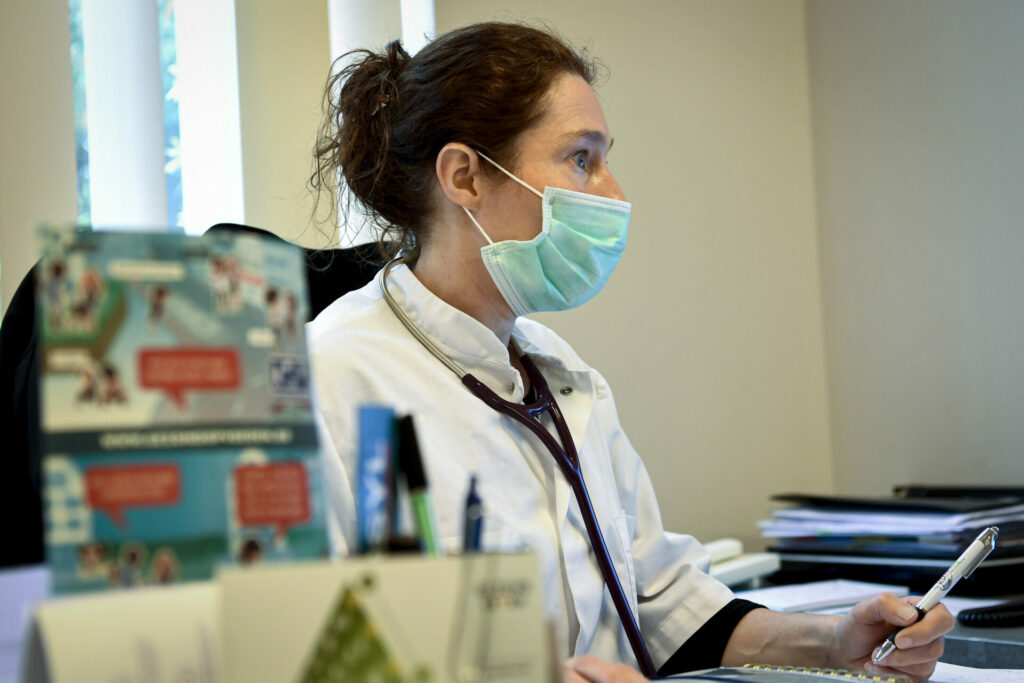The rising number of Covid-19 cases and other respiratory infections in Belgium has spurred the Belgian health authorities to raise the alert level of respiratory tract infections to code orange.
The Risk Management Group (RMG) therefore decided to raise the level of respiratory tract infections from code yellow to code orange, the Interministerial Conference on Public Health (IMC) confirmed. The decision is based on data from Respiradar, a measurement tool that takes into account the circulating respiratory germs but also the pressure on the healthcare system including GP visits and hospital admissions.
In recent weeks, this pressure has been mounting. "Currently, we are seeing an increase in respiratory infections, including especially a sharp rise in influenza cases, increasing the pressure on the healthcare system," said Steven Van Gucht, head of service for Viral Diseases at Health Institute Sciensano.
One month ago, Van Gucht already told The Brussels Times that a large group of people was suffering from poor health over the past few weeks, but the number of ill people was "not exceptional or abnormal".
He now noted that "the pressure on the healthcare system is not unexpected" either. "Every winter there is a spike in respiratory complaints, infections and hospital admissions." The rush is not general but varies from hospital to hospital.
There are already basic recommendations such as hand hygiene, coughing and sneezing into a disposable handkerchief or elbow, indoor ventilation, and staying at home if you are ill that apply when the level of respiratory tract infections is at code yellow.
Protecting the vulnerable
As part of the shift to code orange, other recommendations are formulated for the general population and the health care system to prevent further spread and protect the most vulnerable (including over-65s, people with medical conditions such as cardiovascular disease, diabetes, lung disease, cancer, obesity, chronic kidney failure and a weak immune system).
During the pandemic, virologists learned that face masks also work well against the spread of the flu, which is why they are included in these recommendations.
"In this phase, we strongly recommend that vulnerable people wear face masks (preferably an FFP2 mask) and a surgical face mask for those who regularly surround them as well as for people with symptoms of respiratory infection, especially in crowded places such as public transport," Van Gucht noted.
Face masks are also recommended in healthcare settings in waiting rooms and other places where an increased risk of infection is assessed when in contact with vulnerable people.
Related News
- Flu season underway in Belgium, peak expected in two weeks
- 'High risk' of disease transmission in Belgian hospitals due to poor ventilation
The IMC stressed that the annual flu epidemic is temporary, and the situation is being closely monitored. However, Van Gucht told Belga News Agency that it is likely code orange will remain in force for several weeks.
It is possible the spring holidays (12 February until 16 February in Dutch-speaking schools and from 26 February until 8 March in French-speaking schools) will see the number of cases decrease as children stay home from school and many people take time off work, which reduces the circulation of viruses.

